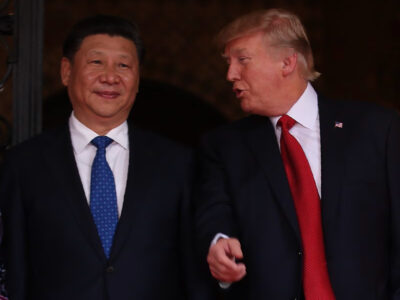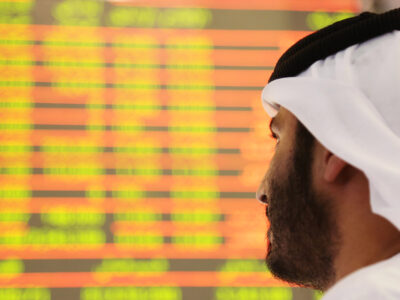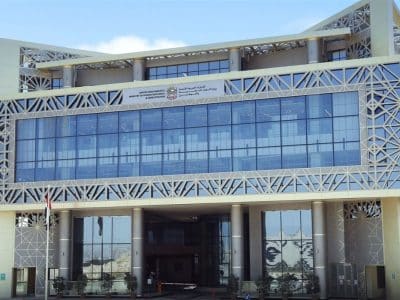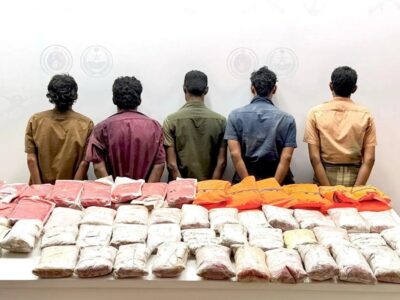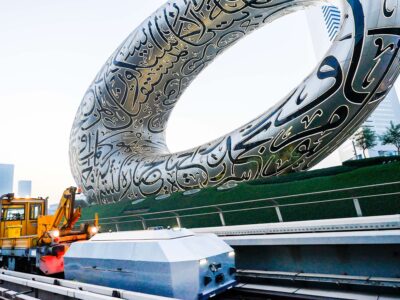Pakistani talk show host Waheed Hussain interrupted a guest discussing the US-led Friends of Democratic Pakistan, which had pledged $5.3bn in aid to the nation. “You mean foes of Pakistan,” Hussain said.
In the same October 8 Waqt News programme, Hussain stopped another guest who was talking about a bill by US senators John Kerry and Richard Lugar to triple non-military aid, subject to curbs including an end to army support for terrorists.
“It’s ‘looter,’ not Lugar,” Hussain said. “American forces want to keep the army under pressure with the conditions and appease India.”
Pakistan talk shows are fanning anti-American sentiment as terrorist violence grows and the US increases drone attacks on militant targets in Pakistan’s tribal areas. Distrust of the US may undermine a recent shift in public opinion in favour of the military, which is battling Islamic extremists in such assaults as the one on the Taliban’s northwest base starting October 16.
An August survey by the Washington-based Pew Research Centre showed that 64 percent of Pakistanis regard the US as an enemy. A poll released July 1 by the Programme on International Policy Attitudes at the University of Maryland shows 90 percent of Pakistanis think the US abuses its power, the highest among the 22 countries surveyed.
The talk shows may undermine US efforts to fight terrorism in the region. Pakistan, a nuclear-armed nation, has been a key ally for America’s $200bn war in neighbouring Afghanistan.
The programmes “have become the primary sites for rabid anti-Americanism on television,” said Ayesha Jalal, a professor of history at Medford, Massachusetts-based Tufts University. “The overwhelming reason is the American presence in Afghanistan, which, together with Washington’s flourishing relationship with India, is seen as a ruse to encircle and squeeze Pakistan.”
Kashif Abbasi, a talk show host for ARY News, said in an October 8 programme: “The US administration, in order to implement its agenda in the world, has been supporting dictators through history.”
Hamid Mir’s show on GEO television, in a discussion on American aid to Pakistan, ran a banner at the top of the screen that read: “Another form of slavery.”
Anti-American sentiment in Pakistan could “ultimately jeopardise the US’s ability to partner with Pakistan effectively,” said Lisa Curtis, a senior research fellow at the Heritage Foundation in Washington. “There is strong sentiment in Pakistan that the US is fickle and untrustworthy.”
It risks weakening a public relations shift in favour of the Pakistan military as it battles militant groups. Recent suicide bombings and gun attacks, closely covered by television networks, led the popular GEO news channel to change the colours of its orange-and-blue logo to green-and-brown army camouflage. It also broadcasts inspirational messages about how Pakistani soldiers are sure to defeat the terrorists.The Pew survey showed 70 percent of Pakistanis rate the Taliban unfavourably, compared with 33 percent a year ago.
Since October 10 guerrillas have attacked the army’s headquarters in Rawalpindi, carried out commando-style raids on police stations in Lahore and bombed an Islamabad university.
Since president Barack Obama took office nine months ago, there have been 39 attacks in Pakistan using drones, or unmanned aircraft, Reuters reported on October 12, compared with 32 in 2008.
Pakistan’s Interior Ministry said in June at least 528 civilians had been killed in drone attacks, without giving a time period. The US has given Pakistan $10bn in aid since 2001.
“There is hatred for the US among the people and the media portrays that picture realistically,” said Shabbir Ali, a 22-year-old student at Urdu University in Karachi. “Do you expect people to love you when you throw missiles on their homes and give a few dollars in exchange?”
The leader of Pakistan’s Taliban, Baitullah Mehsud, was killed in a drone attack in August, according to the US government. His successor, Hakimullah Mehsud, has said his death would be avenged with bombings in major cities.
Pakistan’s government has issued 82 licenses for satellite television channels since 2002, according to the Pakistan Electronic Media Regulatory Authority in Islamabad, of which 65 are operative. They have taken programming to rural areas where 70 percent of the population lives.
“If you want to sell your product, your television, even yourself in this market, you have to be anti-American,” said Sarfaraz Ahmed, a newspaper editor in Karachi.
Television is the main source of information for 78 percent of Pakistanis, compared with seven percent for newspapers and three percent for the internet, according to an August poll by the Washington-based International Republican Institute (IRI). Eighty percent of Pakistanis said television is a credible source of information, compared with 55 percent for newspapers.
Information minister Qamar Zaman Kaira didn’t respond to written questions or requests for an interview.
“Our media is expressing the views of the public like the media elsewhere in the world does,” said Shahid Masood, who hosts a show on GEO Television from Dubai. “Sometimes it goes a little far.”
This article is courtesy of Bloomberg.
